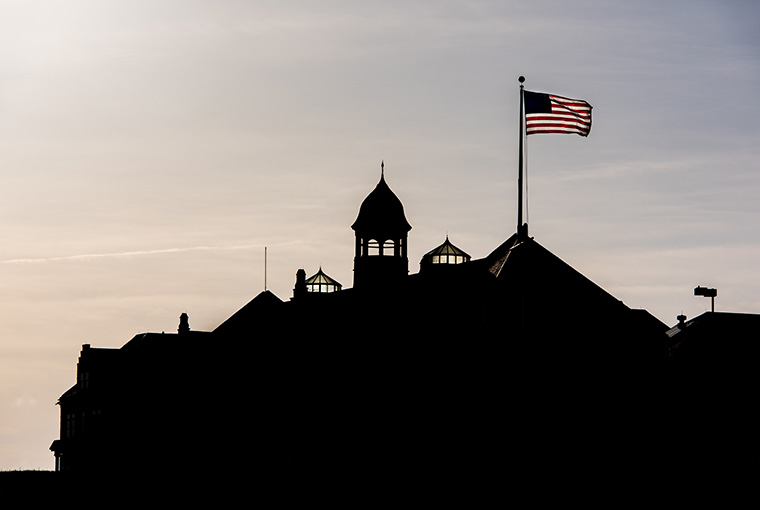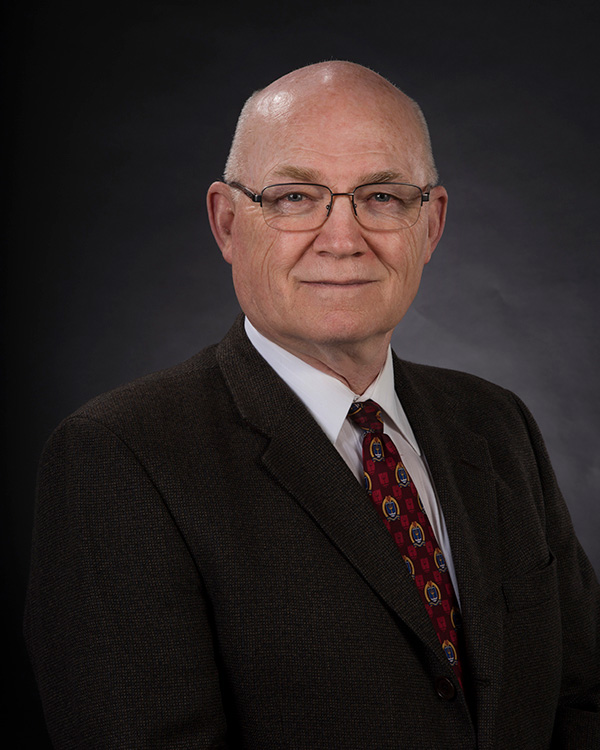Faculty Spotlight on Professor Dayne Nix: How a retired chaplain came to teach war-fighting


(U.S. Navy photo by Javier Chagoya/released)
Dayne Nix had an early calling to join the clergy. But as a young man, after four years of undergraduate work at the University of Colorado, three years in seminary school didn’t sound immediately appealing.
So he joined the Marines instead. And, despite his college degree, he enlisted. It was 1974, the tail end of the Vietnam War.
Instead of being aghast at his college-educated son, Nix’s father was proud. It was a family tradition: His father served in the Corps, as did his three brothers.
“He was quite pleased, actually,” Nix remembers with a chuckle.
But the pull of the church remained strong.
In 1979, Nix left the Marine Corps to become a pastor in the Grace Brethren church, an evangelical Protestant group with its roots in 18th century Germany. Nix’s grandparents had introduced him to the church through their parish in Arvada, Colorado.
The confluence of those two paths – the military and the church -- eventually led him to a 22-year career as an active-duty Navy chaplain, which grew into a scholarly interest in the intersection of religion, security and international affairs.
Now Nix is one of 18 full-time U.S. Naval War College professors in the College of Distance Education who teach at the Naval Postgraduate School in Monterey, California.
Back in the early 1980s, it was not a route he would have predicted for himself.
After trading Marine green for the cloth of the church, Nix had no intention of going back into the military. Pacifism was not the issue: Unlike its cousin the Church of the Brethren, the Grace Brethren church doesn’t take a position on participation in war.
But after several years as pastor of the Arvada church, he felt a yearning for the old life. A friend suggested the reserves. Dipping his toe in, Nix went to the Navy’s chaplain school in Newport.
“That was all she wrote. After I got back in uniform, it just felt natural,” Nix said.
Nix’s assignments took him from Pearl Harbor to Iceland to Qatar, where he worked for U.S. Central Command as an individual augmentee for six months.
“Having the wartime experience over there,” he said. “I think that was one of my highest points as a chaplain.”
At night, he pursued graduate work in theology, leadership and the humanities.
He retired as a commander in 2008 with one foot planted at the Naval War College faculty. He was already teaching distance-education online courses before retirement.
Nix’s current job is teaching joint maritime operations. It appears to be a long way from his theology background – but in some regard, it isn’t, Nix said.
“There is a dimension where it translates. We are really talking about war-fighting. In the bigger context of strategy and war, religion plays a key role,” he said.
Nix largely pursues his scholarly interests outside of his teaching requirements. His work focuses on the ways that nation states use religion to accomplish strategic ends.
His book, “The Integration of Philosophy, Politics, and Conservative Islam in the Thought of Muhammad Iqbal,” was published in 2011.
It springs from his doctoral dissertation at Salve Regina University about a poet who is known as the spiritual father of Pakistan. He stumbled onto the topic while doing research on area religions for CENTCOM.
Currently, Nix is working on a paper about a World War I chaplain and his experiences with combat stress.
He has helped coordinate three conferences on the subject of religion and war, including one in Newport in 2014. As someone who enlisted during the Vietnam era and served through the Iraq and Afghanistan wars, Nix can take the long view on that subject.
“I spent no time in combat. But I’ve seen an awful lot from a few steps back,” he said.
Visit Faculty Profile